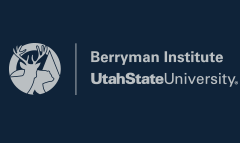Abstract
Supplementing diets of white-tailed deer (Odocoileus virginianus) with pelleted rations is an increasingly common practice aimed at increasing deer antler size on rangelands in Texas. Feed loss to consumption by various nontarget species (e.g., raccoons [Procyon lotor] and feral pigs [Sus scrofa]) raises both ecological and economic concerns. Whole cottonseed is a feedstuff that may afford a more targeted supplemental feeding effort. Accordingly, we determined: (1) consumption rates of whole cottonseed by feral pigs and raccoons in captivity; and (2) species visitation at feed sites and preference for whole cottonseed relative to whole corn under field conditions. For experiments 1 and 2, we trapped subadult feral pigs and raccoons (n = 16 for each) and randomly assigned them to 4 feed treatments. We weighed and took blood to assess gossypol levels from both pigs and raccoons every 2 weeks for 2 months. Pigs were adept at sorting cottonseed from their feed ration in the laboratory trial. Raccoons consumed cottonseed only under severe dietary stress (i.e., diets reduced to 60% of maintenance requirements). To supplement laboratory findings we used motion-triggered video camera systems to monitor species visitation and feeding behaviors in the field. Video surveillance (125 hours of recorded events) of feeders supported our observations from laboratory trials that cottonseed was unpalatable to feral pigs and raccoons, whereas white-tailed deer consumed cottonseed readily. Given our results, we believe that whole cottonseed merits further consideration as a supplement for free-ranging deer.
Recommended Citation
Taylor, Benjamin D.; Lyons, Eddie; Rollins, Dale; Scott, Cody B.; Huston, James E.; and Taylor, Charles A.
(2013)
"Consumption of Whole Cottonseed by White-Tailed Deer and Nontarget Species,"
Human–Wildlife Interactions: Vol. 7:
Iss.
1, Article 10.
DOI: https://doi.org/10.26077/gz6n-s948
Available at:
https://digitalcommons.usu.edu/hwi/vol7/iss1/10



